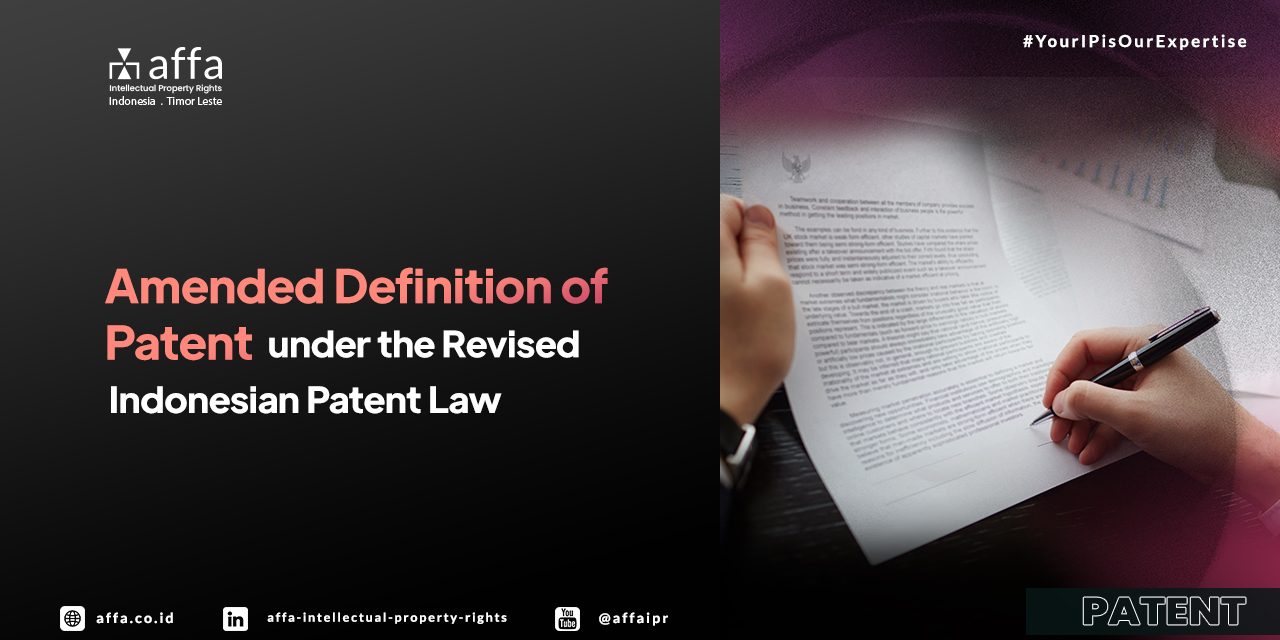The landscape of Intellectual Property in Indonesia continues to evolve, reflecting the dynamic nature of technology and innovation. One of the most significant updates in Law No. 65 of 2024, which is the third amendment to Law No. 13 of 2016 on Patents, lies in the revised definition of “Invention.”
The Old Definition
Under Law No. 13 of 2016, Article 1(2) defined an invention as:
“An idea of an inventor embodied into a specific problem-solving activity in the field of technology in the form of product or process, or refining and developing product or process.”
While this definition provided a foundation for Patent protection, it was deemed limited in addressing the broader advancements in technology and innovation across various industries.
The New Definition
With the enactment of Law No. 65 of 2024, Article 1(2) now defines an invention as:
“An idea of an inventor embodied into a specific problem-solving activity in the field of technology in the form of product and/or process, refinement, and/or development of a product and/or process, as well as systems, methods, and uses.”
Key Changes and Implications
- Broader Scope:
The inclusion of “systems, methods, and uses” significantly broadens the scope of what can be patented. This change acknowledges the importance of protecting technological advancements that may not fit neatly into the previous categories of “product or process.” - Clarity and Flexibility:
By adding “and/or” between product, process, refinement, and development, the law ensures greater flexibility in interpretation, making it more inclusive for different types of innovations. - Alignment with Global Standards:
The new definition aligns more closely with international Patent laws, making Indonesia a more attractive jurisdiction for inventors and businesses seeking to protect their Intellectual Property globally.
Why the Change Matters
This amendment reflects Indonesia’s commitment to adapting its Intellectual Property framework to keep pace with the rapid evolution of technology. From AI-driven systems to innovative methods in healthcare, the revised definition ensures that inventors in Indonesia have a robust legal foundation to protect and commercialize their ideas.
The revision is not only a response to domestic technological advancements but also a move to foster innovation and competitiveness in the international market. By expanding the definition, Indonesia signals its readiness to embrace emerging industries and future innovations.
For a deeper dive into the broader implications of the revised Patent Law, read our comprehensive guide: The Ultimate Guide to the Amendment of the Indonesian Patent Law.
Should you need to know how this new definition impacts your business or invention, feel free to contact us at [email protected].







